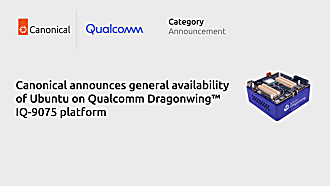Ellen Arnold
on 16 January 2015
 Canonical is excited to announce the newest addition to their Charm Partner Programme, Skymind. Skymind is the company behind the open-source project DeepLearning4J, which is the first commercial-grade, open-source deep-learning library written in Java.
Canonical is excited to announce the newest addition to their Charm Partner Programme, Skymind. Skymind is the company behind the open-source project DeepLearning4J, which is the first commercial-grade, open-source deep-learning library written in Java.
Samuel Cozannet, Strategic Programme Manager at Canonical says, “We are very excited to welcome DeepLearning4J to our ecosystem. This demonstrates Juju adding value at the cutting edge of Data Science. We are looking forward to business solutions leveraging both the power of Deep Learning and the simplicity of Juju to bring value to our customers and partners.”
Adam Gibson, co-founder of Skymind, says “Combining Canonical’s Juju Charm program with Deeplearning4j will bring powerful new data science tools to a much wider user base. With Juju Charm, Skymind technology will become even easier to deploy in the cloud.”
Canonical’s Charm Partner Programme enables solution providers to make best use of Canonical’s award-winning open source cloud orchestration tool, Juju, which allows them to instantly integrate into hundreds of other solutions; scale at the click of button and share blueprint deployments in a drag-and-drop environment. To learn more about the programme, please visit our partner portal.
Skymind’s Deeplearning4j framework is making deep and scalable neural nets to all developers who need to handle unstructured data such as raw text, images, sound and times series. Its artificial neural nets are being used to augment text and image search, conduct sentiment analysis identify anomalies and create powerful recommendation engines.



